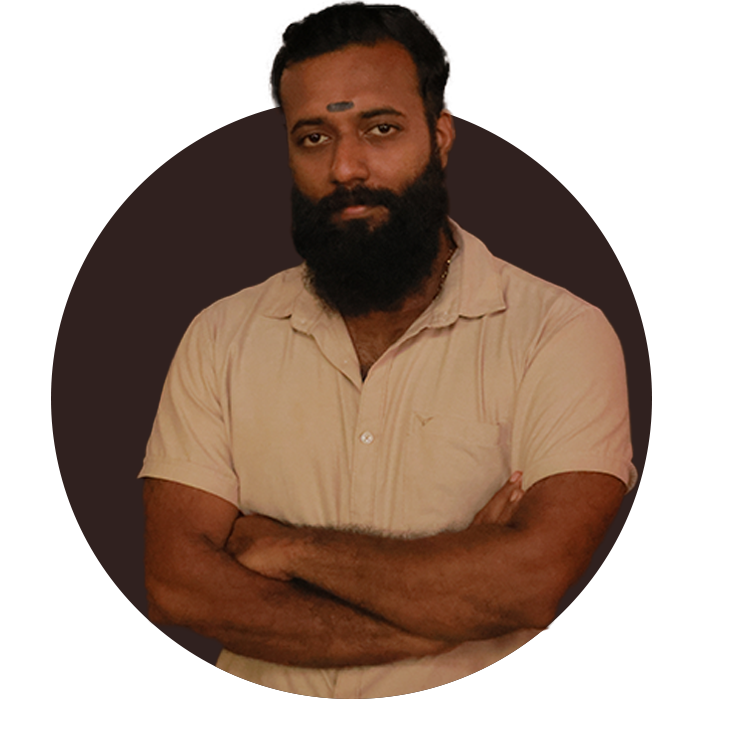Types of Kizhi
At Ojaswi, we use different types of Kizhi based on the condition of the patient.
- Podi Kizhi – A bunch of herbs are dried up, crushed into a powder and filled up in the poultice to form this Kizhi. Podi Kizhi can be used along with medicated oil or with Dhanyamlam (a fermented decoction of grains)
- Ruksha Kizhi (Ruksha Swedha) – Certain body conditions, such as patients with Amavatham (rheumatoid arthritis), cannot be oiled up during treatment. Podi Kizhi, when used on the body without applying oil, is called Ruksha Kizhi or Ruksha Swedha.
- Naranga Kizhi – Made with lemon as the base, this herbal poultice is used primarily when heat needs to be applied at a concentrated area. Naranga Kizhi will not burn the skin when applied for long periods allowing the heat to permeate deeper into the body.
- Ela Kizhi – A herbal poultice that is used on the whole body for reducing inflammation, and boosting immunity.
- Njavara Kizhi – A herbal poultice with premium unpolished red rice from Kerala called Njavara ari as the base along with milk and other herbs. Njavara ari is considered a superfood due to its nutrient-dense nature. It has been used by vaidyas in Kerala for centuries as a food and for therapy due to its strength boosting capability.
Depending on the body type and conditions of the patient, the therapists will recommend the right Kizhi to be used.
Who is it for?
- Podi Kizhi – For patients who have a very old and unhealed joint injury or pain.
- Ruksha Kizhi – For patients who have Amavatham (rheumatoid arthritis) or muscle spasms.
- Naranga Kizhi – For patients with pain in joints, neck, chest, especially cervical spondylosis, sciatica and disc bulging.
- Ela Kizhi – For patients suffering osteoarthritis and back pain.
- Njavara Kizhi – For patients suffering joint immobility and reduced circulation due to arthritis.
Benefits
- Reduces inflammation
- Improves mobility
- Rejuvenates body
- Increases blood circulation
- Reduces stress and anxiety
- Boosts immunity
- Nourishes skin tissues
- Time: 15 or 30 mins
-
Cost: 15 mins – INR 1000
30 mins – INR 1500
30 mins – INR 2000 (only for Njavara Kizhi)
Frequently Asked Questions
What is Kizhi used for?
Kizhi is a traditional herbal poultice therapy used to treat muscle pain, joint stiffness, inflammation, and neuromuscular conditions. It delivers warmth and herbal extracts deep into the tissues to stimulate healing and circulation.
How is a Kizhi prepared?
Medicinal herbs are slow-cooked in milk or medicated oil and tied into a soft muslin pouch (bolus). This pouch is then gently heated and applied to the body after Abhyangam (oil massage).
What does the treatment feel like?
The experience is warm, soothing, and aromatic. As the Kizhi is pressed and stroked over the body, the herbal juices are released and absorbed into the skin—providing relief from deep-seated pain and tightness.
Are there different types of Kizhi?
Yes. Depending on your body type and condition, Ojaswi offers:
- Podi Kizhi – for old joint injuries
- Ruksha Kizhi – for non-oil conditions (e.g. rheumatoid arthritis)
- Naranga Kizhi – for intense localized pain (lemon-based)
- Ela Kizhi – for inflammation and immunity
- Njavara Kizhi – for mobility and nourishment (rice-based)
Who is it ideal for?
Kizhi is recommended for:
- Arthritis and osteoarthritis patients
- Those with old injuries or stiffness
- People recovering from muscle spasms, sciatica, or neurological issues


